What is irritable bowel syndrome?
Irritable bowel syndrome (IBS) is a common condition that affects your digestive system, especially the large intestine. It causes uncomfortable symptoms like belly pain, cramping, bloating, gas and changes in bowel habits such as diarrhea, constipation or both.
Although IBS can be disruptive and frustrating, it doesn’t cause damage to your digestive tract or raise your risk of conditions like Cáncer de colon. It is a chronic (long-term) condition, but many people are able to manage it with a combination of lifestyle changes, diet, stress reduction and when needed medication or therapy.
Most people with IBS have mild to moderate symptoms that come and go. A smaller number experience more severe symptoms that may need extra support or treatment. Working closely with your doctor can help you find the right strategies to relieve symptoms and improve your quality of life.
Types of IBS
Doctors classify IBS into subtypes based on stool consistency and frequency. Knowing which type you have is important because not all types respond to the same treatments, and treatments that may help with one type can make another type worse. Still, your doctor can diagnose you with IBS even if your symptoms don’t fall into one of these subtypes.
The three subtypes of IBS are:
- IBS with constipation (IBS-C): More than a quarter of your stools are hard, and less than a quarter are loose or watery
- IBS with diarrhea (IBS-D): More than a quarter of your stools are loose, and less than a quarter are hard
- IBS with mixed bowel habits (IBS-M): With this type, you experience both watery and hard stools equally on the days that you have bowel movements.
Irritable bowel syndrome symptoms
The characteristic symptoms of IBS are belly pain and changes in your bowel movements. Sometimes, IBS symptoms happen together all at once or individually. You may also have several days when you don’t experience any symptoms. Flare-ups are also common with IBS—these are times when your symptoms are more severe than usual.
Symptoms can also affect men and women differently. Women, for example, are more likely to have belly pain and constipation, and their symptoms may get worse during their period. Men, on the other hand, often experience diarrhea.
In general, symptoms of IBS include:
- Belly (abdominal) pain
- Bloating
- Constipation
- Cramps
- Diarrhea
- Feeling like you haven’t completely emptied your bowels after pooping
- Gassiness
- Stool that contains mucus
When to see a doctor
It’s normal to occasionally experience gastrointestinal discomfort such as gassiness, diarrhea and constipation. But see your doctor if your symptoms are severe and have lasted for at least three months. Your doctor can perform a thorough evaluation and help you find a treatment that offers relief.
What causes IBS?
Experts have not yet identified the causes of IBS, but they believe a combination of factors contributes. Functional GI disorders like IBS are thought to be caused by a communication breakdown between the brain and the gut. These communication problems may speed up or slow down the movement of food through your intestines, leading to diarrhea, constipation and other symptoms. Poor signaling between the brain and your gut can also make nerves more sensitive and cause them to overreact to normal digestion, triggering discomfort and other symptoms.
Other potential causes of IBS include:
- Changes to your microbiome: Your gut microbiome includes good bacteria and other microbes. People with IBS appear to have different microbiomes than people without IBS.
- Environmental factors: Stress (particularly early-life stress), food intolerances and antibiotic use have all been linked to IBS symptoms.
- Infections: IBS symptoms can develop after a severe GI infection called gastroenteritis.
Irritable bowel syndrome risk factors
IBS is very common and can affect people of all ages and races. Anyone can get IBS, but in the US, it affects more women than men and usually appears before age 45. You may be at greater risk based on your lifestyle, history of certain medical conditions and genetics.
Risk factors for IBS include:
- Being female: About twice as many women experience IBS, possibly due to hormone fluctuations.
- Having a family member with IBS: It’s not entirely clear how genetics affect IBS, but people with IBS tend to have a family member with the condition.
- Having a mental health condition: People with IBS are more likely to have anxiety, depression or post-traumatic stress disorder.
- Previous gastrointestinal infections: Bacterial gastroenteritis and other infections disrupt the gut microbiome and increase the risk of IBS.
- Stress: Abnormal nerves and hormones associated with stress can trigger irregular intestinal movement.
How is IBS diagnosed?
Generally, doctors diagnose IBS based on your symptoms and medical history. There’s no test that can diagnose the condition. However, your doctor may order tests to rule out other conditions with similar symptoms, like celiac disease, Crohn’s disease, ulcerative colitis, microscopic colitis or infectious colitis.
After other conditions have been ruled out, your doctor may use established diagnostic criteria or symptom types to identify IBS and guide treatment.
- Rome criteria. These criteria include belly pain and discomfort averaging at least one day a week in the last three months. This also usually occurs with at least two of the following: pain and discomfort related to defecation, a change in the frequency of defecation, or a change in stool consistency.
- Type of IBS. IBS is often categorized into four types based on your symptoms. This helps guide treatment:
- IBS with constipation (IBS-C)
- IBS with diarrhea (IBS-D)
- Mixed IBS (IBS-M), which includes both constipation and diarrhea
- Unclassified IBS, for symptoms that don’t clearly fit the other categories
-
Medical history and exam
Your doctor will start with a full review of your personal and family medical history. They’ll ask questions about:
- When your symptoms started and how long they’ve lasted
- How often you experience belly pain, bloating, gas or changes in bowel habits
- Whether anything seems to trigger your symptoms, such as certain foods or stress
- Whether your symptoms affect your daily life or sleep
They may also ask about recent infections, medications or other health issues that could be contributing. A physical exam can help check for signs of tenderness or swelling in your abdomen and rule out other possible causes.
If you’re over age 50 or have symptoms like unexplained weight loss, rectal bleeding, anemia or nighttime diarrhea, your doctor may order additional tests.
-
Lab tests
Lab tests can help rule out other conditions that mimic IBS.
- Blood tests: These can check for thyroid problems, anemia, infections and signs of inflammation. Your doctor may also screen for celiac disease or food intolerances.
- Breath test: This type of test measures the amount of hydrogen and methane in your breath to determine if you have a condition known as small bacterial overgrowth (SIBO) in your intestine, which can present with similar symptoms as IBS symptoms.
- Stool sample: Doctors analyze a small stool sample for signs of inflammation or infection to identify potential causes of symptoms.
-
Imaging and other procedures
- Colonoscopia: Your doctor may recommend one if you have blood in your stool or other symptoms or risk factors of colorectal cancer. They may also ask for a biopsy (tissue sample) to be taken during the colonoscopy.
- Flexible sigmoidoscopy : This test is similar to a colonoscopy but examines only the lower part of your colon. It may be used to look for inflammation or signs of disease.
- Upper GI endoscopy: This is an imaging test that helps your doctor see your throat, esophagus and stomach. Your doctor may request a biopsy to help diagnose or rule out celiac disease.
Irritable bowel syndrome treatments
Treatment for IBS involves a personalized approach based on your specific symptoms and IBS type.
Treatment for IBS-D, or IBS with diarrhea, focuses on preventing loose stools and treating any associated dehydration. Treating IBS-C, or IBS with constipation, aims to relieve hard stools. If you have IBS with diarrhea and constipation, your treatment will aim to restore normal bowel function.
IBS treatment often combines different approaches. You may benefit from dietary changes, lifestyle adjustments, therapy or medications that target specific symptoms.
Dietary changes
What you eat can play a big role in triggering or relieving IBS symptoms. Your doctor may recommend limiting or avoiding certain foods like spicy, fatty or highly processed meals. Some vegetables, like cabbage or broccoli, can cause gas and bloating.
Tracking what you eat and how you feel after each meal can help you and your doctor identify potential triggers.
Your doctor may recommend:
- Avoiding gluten: This protein found in foods like wheat, barley and rye can trigger IBS symptoms. Following a gluten-free diet may help.
- Eating more fiber: Fiber helps you poop more easily if you have constipation. The type of fiber found in beans, fruits and oats (soluble fiber) seems to be most helpful for people with IBS.
- Following the low-FODMAP diet: FODMAP stands for fermentable oligosaccharides, disaccharides, monosaccharides and polyols. These are sugars found in a variety of foods that can be difficult to digest. Avoiding FODMAP foods may help your symptoms.
Lifestyle changes
Your daily habits can have a big impact on IBS symptoms. Making small changes to how you move, sleep, eat and manage stress may help reduce flare-ups and improve your quality of life.
Your care team may suggest:
- Staying active: Regular physical activity can help your digestive system work more smoothly. Gentle exercises like walking, swimming or yoga may ease constipation, reduce stress and improve your overall well-being.
- Reducing stress: Stress doesn’t cause IBS but can make symptoms worse. Learning how to manage everyday stress is an important part of care. Try relaxation techniques like deep breathing, meditation or progressive muscle relaxation. Even a few minutes each day can make a difference.
- Creating a consistent routine: Try to eat meals around the same times each day and get regular sleep. Skipping meals or eating late at night can lead to symptoms. Getting 7 to 9 hours of sleep each night can also support your digestive health.
- Limiting caffeine and alcohol: Caffeine and alcohol can irritate your digestive system and may make diarrhea or cramping worse. Cutting back or avoiding these drinks may help ease symptoms.
- Quitting smoking: Smoking can interfere with digestion and worsen IBS symptoms. If you smoke, talk to your doctor about ways to quit. Support programs, medication and counseling can all help.
- Listening to your body: Learn to recognize early signs of a flare-up and adjust your activities, meals or self-care routine as needed. Keeping a symptom diary may help you notice patterns or triggers over time.
Building healthier habits takes time, but even small changes can lead to lasting relief. Your care team can help you set realistic goals and find strategies that work for your lifestyle.
Medicación
In addition to diet and lifestyle changes, some medications are used to treat IBS, mainly those that target symptoms like diarrhea, constipation and bloating.
- Antidiarrheal medications: These slow down bowel movements or absorb excess fluid in the intestines to relieve loose, watery stools.
- Antibiotics: If bacterial growth is causing IBS symptoms, antibiotics can reduce these bacteria in the intestines.
- Antidepressants: Your doctor may prescribe antidepressants, as they can help reduce discomfort and gut sensitivity.
- Fiber supplements: Your provider may recommend taking a fiber supplement to reduce constipation.
- Laxatives: These medications, often available over the counter, help relieve the symptoms of IBS-C by softening stools so they can move through the intestines.
- Medications for IBS: A few medications specifically intended to treat IBS can help people with certain symptoms. Many are used only when other medications and lifestyle changes have not helped your symptoms.
Therapies
Therapy can help reduce stress, change how your brain and gut communicate and give you tools to manage your symptoms long term.
Therapies may include:
- Cognitive behavioral therapy (CBT): This short-term, structured therapy helps you identify and change thoughts or behaviors that may affect your digestion.
- Gut-directed hypnotherapy: This type of therapy uses guided relaxation and suggestions to reduce IBS symptoms.
- Mindfulness-based stress reduction (MBSR): This approach combines meditation and gentle movement to help you respond more calmly to stress and symptoms.
Working with a behavioral health specialist can improve your overall quality of life and help reduce the frequency and severity of flare-ups.
Find specialized IBS care
At Baylor Scott & White, we offer several locations for the treatment of irritable bowel syndrome, including gastroenterology centers across North and Central Texas. Our experienced team is ready to provide personalized care to help improve your quality of life. Whether you're seeking diagnostic testing, treatment options or ongoing support, our teams are here to help you.
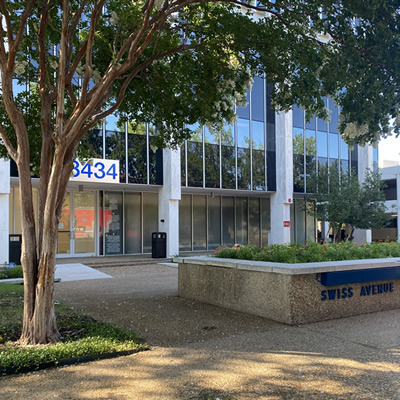
Baylor Scott & White Advanced Digestive Care
3434 Swiss Ave Ste 200, Dallas, TX, 75204- Lunes: 8:00 am - 5:00 pm
- Martes: 8:00 am - 5:00 pm
- Miércoles: 8:00 am - 5:00 pm
- Jueves: 8:00 am - 5:00 pm
- Viernes: 8:00 am - 5:00 pm

Baylor Scott & White Centro Médico All Saints - Fort Worth
1400 8th Ave , Fort Worth, TX, 76104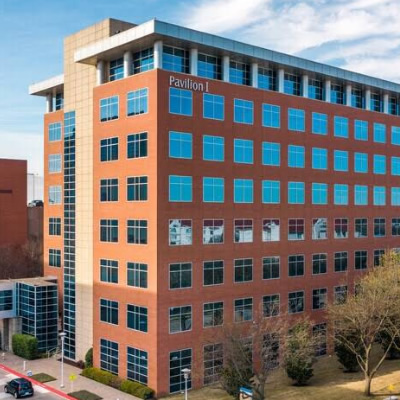
Baylor Scott & White Ambulatory Endoscopy Center
4708 Alliance Blvd Pavilion I, Ste 210, Plano, TX, 75093- Lunes: 7:00 am - 3:00 pm
- Martes: 7:00 am - 3:00 pm
- Miércoles: 7:00 am - 3:00 pm
- Jueves: 7:00 am - 3:00 pm
- Viernes: 7:00 am - 3:00 pm
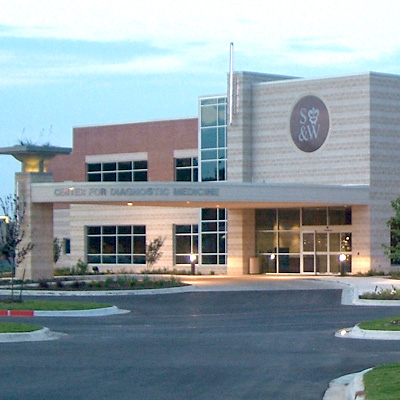
Baylor Scott & White Center for Diagnostic Medicine - Temple
1605 S 31st St , Temple, TX, 76508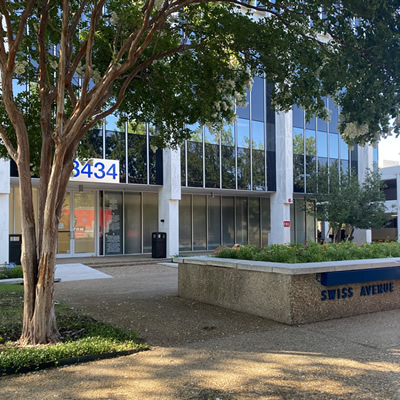
Baylor Scott & White Center for Esophageal Diseases
3434 Swiss Ave Ste 200, Dallas, TX, 75204- Lunes: 9:00 am - 5:00 pm
- Martes: 9:00 am - 5:00 pm
- Miércoles: 9:00 am - 5:00 pm
- Jueves: 9:00 am - 5:00 pm
- Viernes: 9:00 am - 1:00 pm
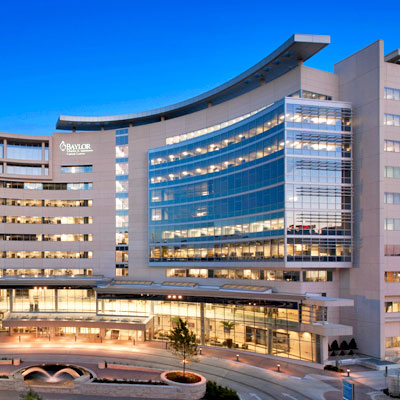
Baylor Scott & White Center for Esophageal Diseases - Sammons Center (Prearranged Appointment)
3410 Worth St Ste 235, Dallas, TX, 75246
Baylor Scott & White Center for Inflammatory Bowel Diseases
3409 Worth St Ste 600, Dallas, TX, 75246- Lunes: 8:30 am - 4:30 pm
- Martes: 8:30 am - 4:30 pm
- Miércoles: 8:30 am - 4:30 pm
- Jueves: 8:30 am - 4:30 pm
- Viernes: 8:30 am - 4:30 pm
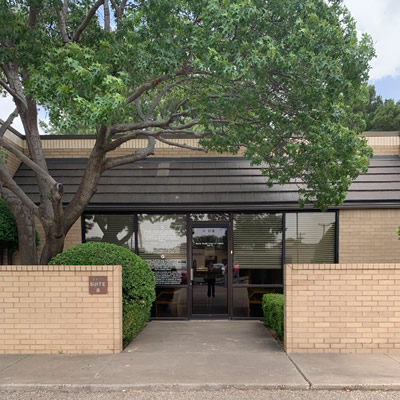
Baylor Scott & White Center for Inflammatory Bowel Diseases - Lubbock
3711 22nd St Ste B, Lubbock, TX, 79410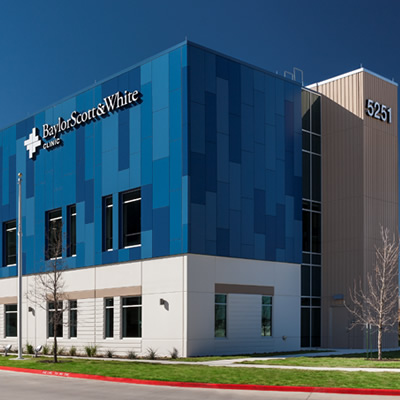
Baylor Scott & White Clinic - Austin Oak Hill
5251 US 290 , Austin, TX, 78735- Lunes: 8:00 am - 5:00 pm
- Martes: 8:00 am - 5:00 pm
- Miércoles: 8:00 am - 5:00 pm
- Jueves: 8:00 am - 5:00 pm
- Viernes: 8:00 am - 5:00 pm
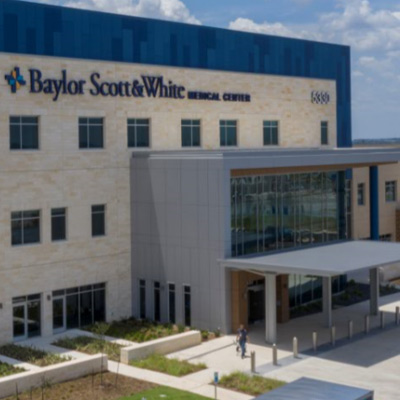
Baylor Scott & White Clinic - Buda Medical Center
5330 Overpass Rd Ste 100, Buda, TX, 78610- Lunes: 8:00 am - 5:00 pm
- Martes: 8:00 am - 5:00 pm
- Miércoles: 8:00 am - 5:00 pm
- Jueves: 8:00 am - 5:00 pm
- Viernes: 8:00 am - 5:00 pm
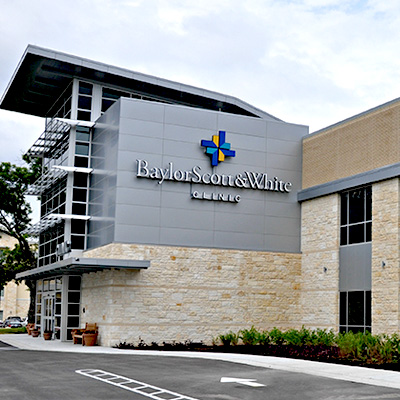
Baylor Scott & White Clinic - Cedar Park
910 E Whitestone Blvd , Cedar Park, TX, 78613- Lunes: 8:00 am - 5:00 pm
- Martes: 8:00 am - 5:00 pm
- Miércoles: 8:00 am - 5:00 pm
- Jueves: 8:00 am - 5:00 pm
- Viernes: 8:00 am - 5:00 pm
- Lunes: 7:00 am - 5:00 pm
- Martes: 7:00 am - 5:00 pm
- Miércoles: 7:00 am - 5:00 pm
- Jueves: 7:00 am - 5:00 pm
- Viernes: 7:00 am - 5:00 pm
- Saturday: 9:00 am - 2:00 pm
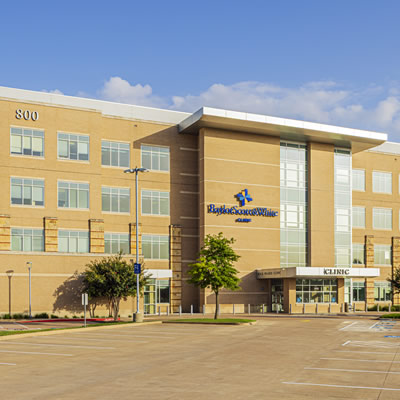
Baylor Scott & White Clinic - College Station Rock Prairie
800 Scott and White Dr , College Station, TX, 77845- Lunes: 7:30 am - 5:00 pm
- Martes: 7:30 am - 5:00 pm
- Miércoles: 7:30 am - 5:00 pm
- Jueves: 7:30 am - 5:00 pm
- Viernes: 7:30 am - 5:00 pm
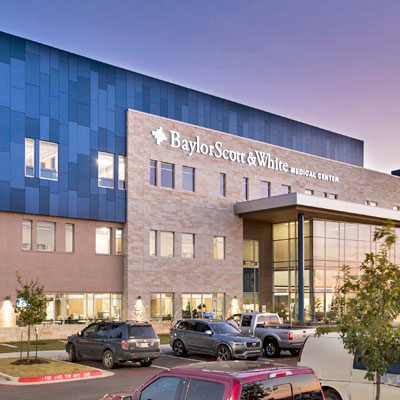
Baylor Scott & White Clinic - Pflugerville Medical Center
2600 E Pflugerville Pkwy Bldg 1, Ste 200, Pflugerville, TX, 78660- Lunes: 8:00 am - 5:00 pm
- Martes: 8:00 am - 5:00 pm
- Miércoles: 8:00 am - 5:00 pm
- Jueves: 8:00 am - 5:00 pm
- Viernes: 8:00 am - 5:00 pm
- Lunes: 7:30 am - 4:00 pm
- Martes: 7:30 am - 4:00 pm
- Miércoles: 7:30 am - 4:00 pm
- Jueves: 7:30 am - 4:00 pm
- Viernes: 7:30 am - 4:00 pm
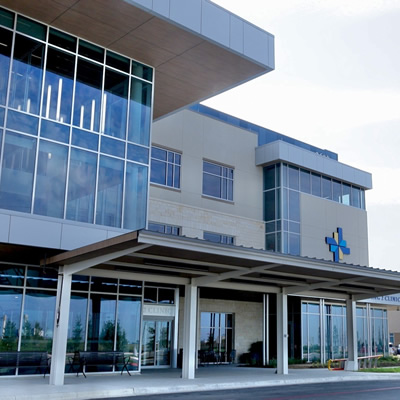
Baylor Scott & White Clinic - Pflugerville Medical Center Building 2
2600 E Pflugerville Pkwy Building 2, Pflugerville, TX, 78660- Lunes: 8:00 am - 5:00 pm
- Martes: 8:00 am - 5:00 pm
- Miércoles: 8:00 am - 5:00 pm
- Jueves: 8:00 am - 5:00 pm
- Viernes: 8:00 am - 5:00 pm
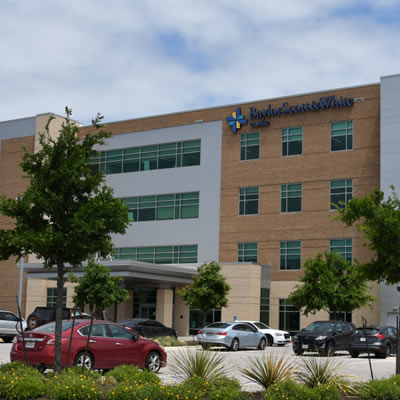
Baylor Scott & Clínica Blanca - Round Rock 300 Universidad
300A University Blvd , Round Rock, TX, 78665- Lunes: 8:00 am - 5:00 pm
- Martes: 8:00 am - 5:00 pm
- Miércoles: 8:00 am - 5:00 pm
- Jueves: 8:00 am - 5:00 pm
- Viernes: 8:00 am - 5:00 pm
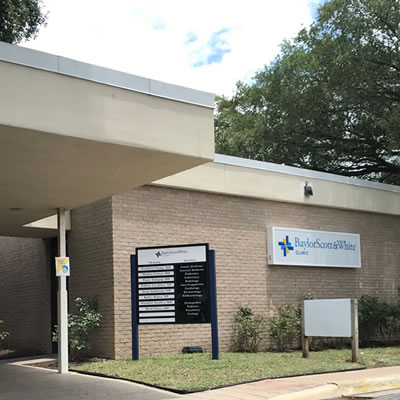
Baylor Scott & White Clinic - Taylor
403 Mallard Ln , Taylor, TX, 76574- Lunes: 7:30 am - 5:00 pm
- Martes: 7:30 am - 5:00 pm
- Miércoles: 7:30 am - 5:00 pm
- Jueves: 7:30 am - 5:00 pm
- Viernes: 7:30 am - 4:00 pm
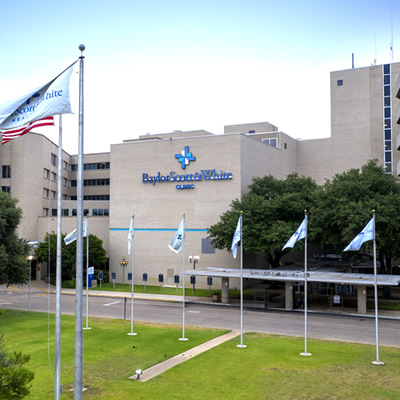
Baylor Scott & White Clinic - Temple
2401 S 31st St , Temple, TX, 76508- Lunes: 8:00 am - 5:00 pm
- Martes: 8:00 am - 5:00 pm
- Miércoles: 8:00 am - 5:00 pm
- Jueves: 8:00 am - 5:00 pm
- Viernes: 8:00 am - 5:00 pm
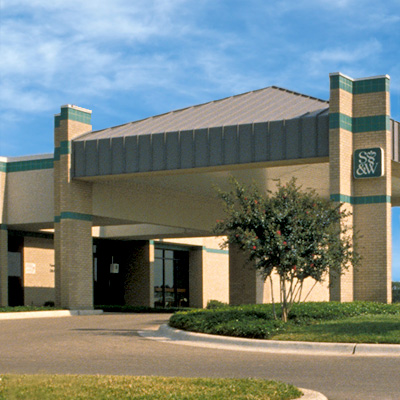
Baylor Scott & White Clinic - Waco
7700 Fish Pond Rd , Waco, TX, 76710- Lunes: 8:00 am - 5:00 pm
- Martes: 8:00 am - 5:00 pm
- Miércoles: 8:00 am - 5:00 pm
- Jueves: 8:00 am - 5:00 pm
- Viernes: 8:00 am - 5:00 pm

Baylor Scott & White Digestive Diseases - Centennial
4461 Coit Rd Pav 2, Ste 401, Frisco, TX, 75035- Lunes: 8:30 am - 4:30 pm
- Martes: 8:30 am - 4:30 pm
- Miércoles: 8:30 am - 4:30 pm
- Jueves: 8:30 am - 4:30 pm
- Viernes: 8:30 am - 4:30 pm

Baylor Scott & White Digestive Diseases - Fort Worth
1250 8th Ave Ste 650, Fort Worth, TX, 76104- Lunes: 8:00 am - 5:00 pm
- Martes: 8:00 am - 5:00 pm
- Miércoles: 8:00 am - 5:00 pm
- Jueves: 8:00 am - 5:00 pm
- Viernes: 8:00 am - 12:00 pm
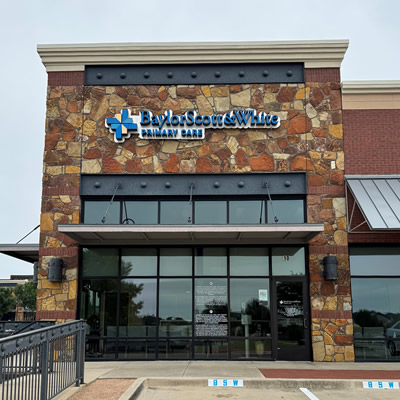
Baylor Scott & White Digestive Diseases - Prosper
111 S Preston Rd Ste 10, Prosper, TX, 75078- Lunes: 8:30 am - 4:30 pm
- Martes: 8:30 am - 4:30 pm
- Miércoles: 8:30 am - 4:30 pm
- Jueves: 8:30 am - 4:30 pm
- Viernes: 8:30 am - 4:30 pm
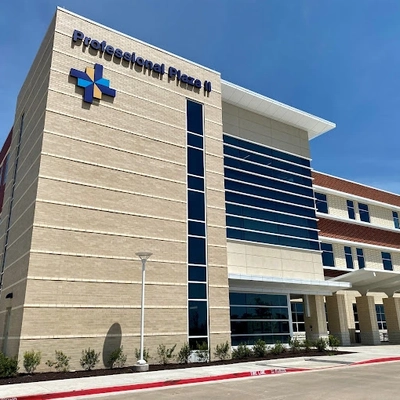
Baylor Scott & White Digestive Diseases - Waxahachie
2360 N Interstate 35E Ste 310 , Waxahachie, TX, 75165- Lunes: 8:00 am - 4:30 pm
- Martes: 8:00 am - 4:30 pm
- Miércoles: 8:00 am - 4:30 pm
- Jueves: 8:00 am - 4:30 pm
- Viernes: 8:00 am - 4:30 pm

Baylor Scott & White Digestive Diseases and Medical Weight Loss - Plano
4716 Alliance Blvd Pavilion II, Ste 470, Plano, TX, 75093- Lunes: 8:00 am - 5:00 pm
- Martes: 8:00 am - 5:00 pm
- Miércoles: 8:00 am - 5:00 pm
- Jueves: 8:00 am - 5:00 pm
- Viernes: 8:00 am - 5:00 pm
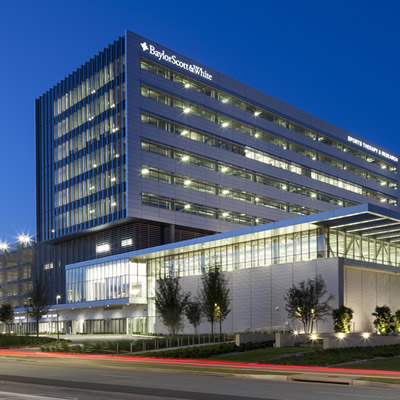
Baylor Scott & White Digestive Diseases at The Star
3800 Gaylord Pkwy Ste 910, Frisco, TX, 75034- Lunes: 8:30 am - 4:30 pm
- Martes: 8:30 am - 4:30 pm
- Miércoles: 8:30 am - 4:30 pm
- Jueves: 8:30 am - 4:30 pm
- Viernes: 8:30 am - 4:30 pm

Baylor Scott & White Digestive Diseases Group - Anna
450 N Standridge Blvd Ste 104, Anna, TX, 75409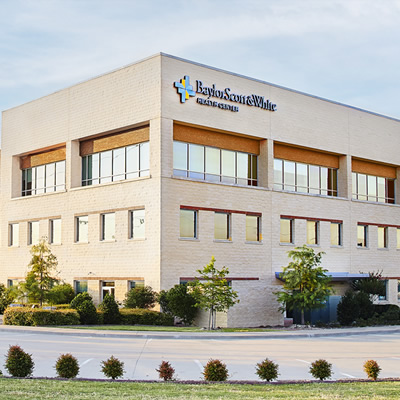
Baylor Scott & White Digestive Diseases Group - Garland
7217 Telecom Pkwy Ste 300, Garland, TX, 75044- Lunes: 8:00 am - 5:00 pm
- Martes: 8:00 am - 5:00 pm
- Miércoles: 8:00 am - 5:00 pm
- Jueves: 8:00 am - 5:00 pm
- Viernes: 8:00 am - 5:00 pm

Baylor Scott & White Digestive Diseases Group - McKinney
5220 W University Dr Ste 250, McKinney, TX, 75071
Baylor Scott & White Digestive Diseases Group - McKinney
5220 W University Dr POB II, Ste 250, McKinney, TX, 75071- Lunes: 8:30 am - 4:30 pm
- Martes: 8:30 am - 4:30 pm
- Miércoles: 8:30 am - 4:30 pm
- Jueves: 8:30 am - 4:30 pm
- Viernes: 8:30 am - 4:30 pm

Baylor Scott & White Digestive Diseases Group - Park Cities
9101 N Central Expy Ste 300C, Dallas, TX, 75231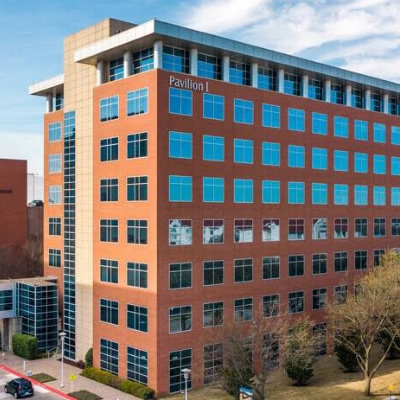
Baylor Scott & White Digestive Diseases Group - Plano
4708 Alliance Blvd Pavilion I, Ste 200, Plano, TX, 75093- Lunes: 8:00 am - 5:00 pm
- Martes: 8:00 am - 5:00 pm
- Miércoles: 8:00 am - 5:00 pm
- Jueves: 8:00 am - 5:00 pm
- Viernes: 8:00 am - 5:00 pm
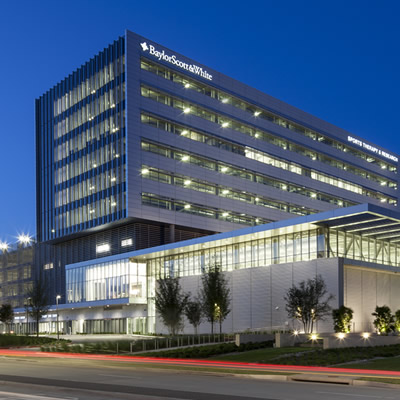
Baylor Scott & White Digestive Diseases Group at The Star
3800 Gaylord Pkwy Ste 910, Frisco, TX, 75034- Lunes: 8:00 am - 5:00 pm
- Martes: 8:00 am - 5:00 pm
- Miércoles: 8:00 am - 5:00 pm
- Jueves: 8:00 am - 5:00 pm
- Viernes: 8:00 am - 5:00 pm
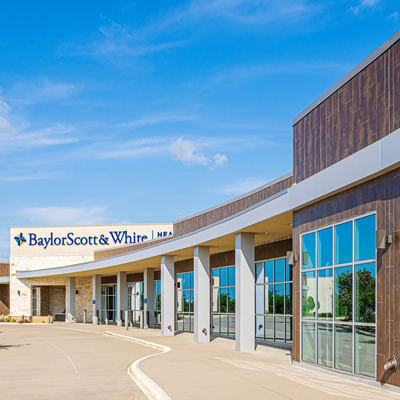
Baylor Scott & White Gastroenterology - Greenville
4400 Interstate 30 W Ste 300, Greenville, TX, 75402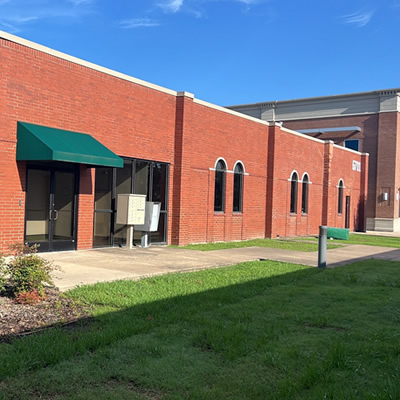
Baylor Scott & White Gastroenterology - Lake Pointe
6701 Heritage Pkwy Ste 130, Rockwall, TX, 75087
Baylor Scott & White Gastroenterology - Rockwall
2504 Ridge Rd Ste 202, Rockwall, TX, 75087- Lunes: 8:00 am - 5:00 pm
- Martes: 8:00 am - 5:00 pm
- Miércoles: 8:00 am - 5:00 pm
- Jueves: 8:00 am - 5:00 pm
- Viernes: 8:00 am - 5:00 pm
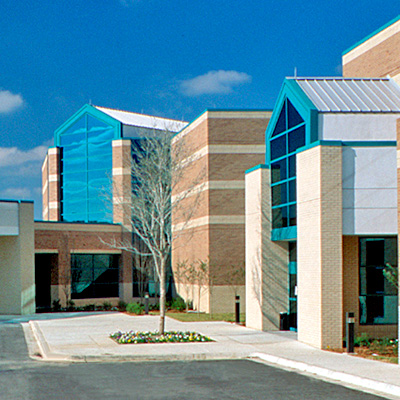
Baylor Scott & White McLane Children's at Baylor Scott & White Clinic - College Station University Drive
1700 University Dr E East Entrance 15, First Floor, Desk P, College Station, TX, 77840- Lunes: 8:00 am - 7:00 pm
- Martes: 8:00 am - 5:00 pm
- Miércoles: 8:00 am - 7:00 pm
- Jueves: 8:00 am - 5:00 pm
- Viernes: 8:00 am - 5:00 pm
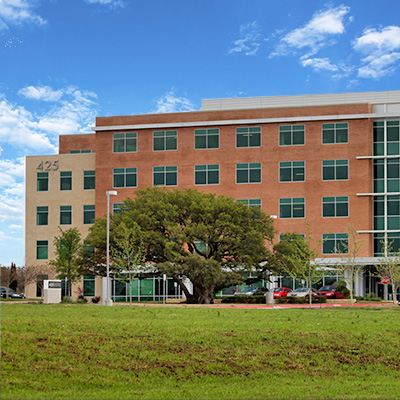
Baylor Scott & White McLane Children's at Baylor Scott & White Clinic - Round Rock 425 University
425 University Blvd Floor 3, Round Rock, TX, 78665- Lunes: 7:00 am - 6:00 pm
- Martes: 7:00 am - 6:00 pm
- Miércoles: 7:00 am - 6:00 pm
- Jueves: 7:00 am - 6:00 pm
- Viernes: 7:00 am - 6:00 pm
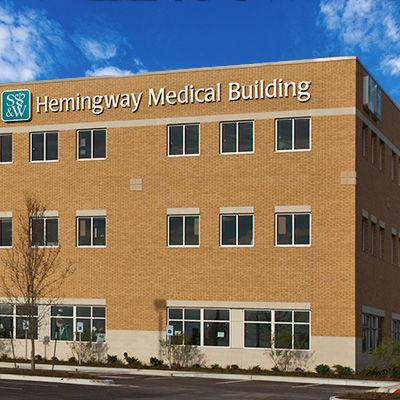
Baylor Scott & White McLane Children's at Baylor Scott & White Specialty Clinic - Killeen Hemingway
2405 S Clear Creek Rd Ste 310, Killeen, TX, 76549- Lunes: 7:00 am - 7:00 pm
- Martes: 7:00 am - 7:00 pm
- Miércoles: 7:00 am - 7:00 pm
- Jueves: 7:00 am - 7:00 pm
- Viernes: 7:00 am - 7:00 pm
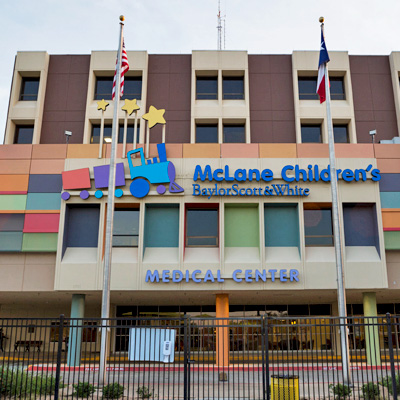
Baylor Scott & White McLane Children's Medical Center - Templo
1901 SW H K Dodgen Loop , Temple, TX, 76502
Baylor Scott & White McLane Children's Specialties at Baylor Scott & White Clinic - Round Rock 425 University
425 University Blvd , Round Rock, TX, 78665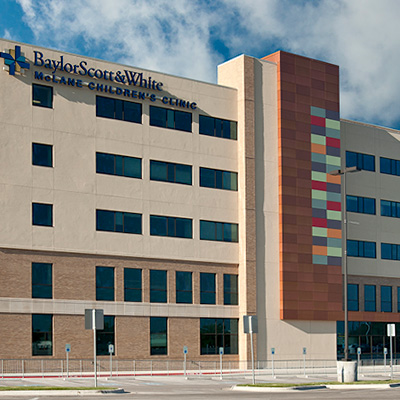
Baylor Scott & White McLane Children's Specialty Clinic - Temple
1901 SW H K Dodgen Loop , Temple, TX, 76502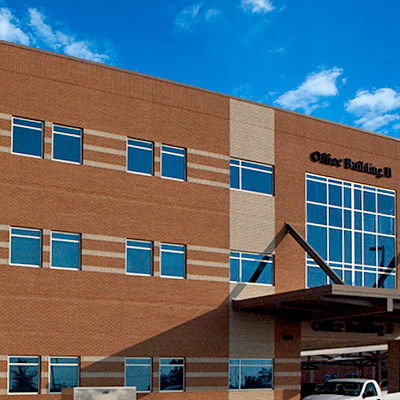
Baylor Scott & White McLane Children's Specialty Clinic - Waco Hillcrest
120 Hillcrest Medical Blvd Bldg II, Ste 101, Waco, TX, 76712- Lunes: 8:00 am - 5:00 pm
- Martes: 8:00 am - 5:00 pm
- Miércoles: 8:00 am - 5:00 pm
- Jueves: 8:00 am - 5:00 pm
- Viernes: 8:00 am - 5:00 pm
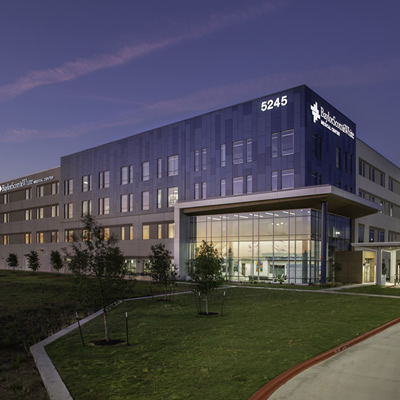
Baylor Scott & White Medical Center - Austin
5245 W US Hwy 290 Service Rd , Austin, TX, 78735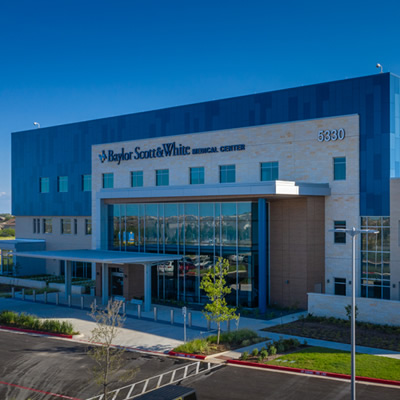
Baylor Scott & White Medical Center - Buda
5330 Overpass Rd , Buda, TX, 78610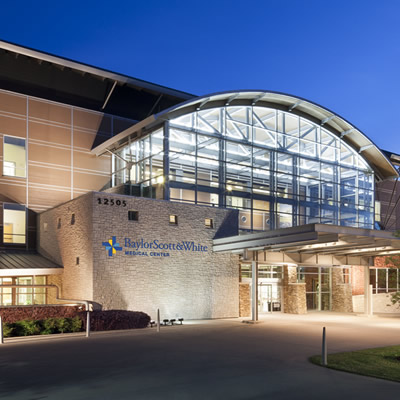
Baylor Scott & White Medical Center - Centenario
12505 Lebanon Rd , Frisco, TX, 75035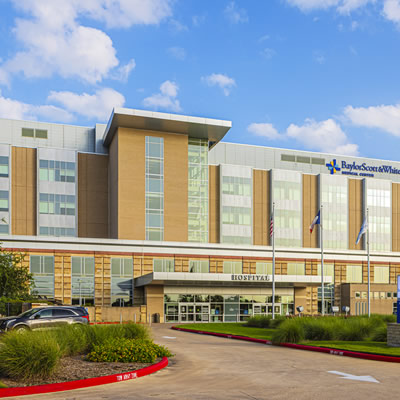
Centro Médico Baylor Scott & White - College Station
700 Scott and White Dr , College Station, TX, 77845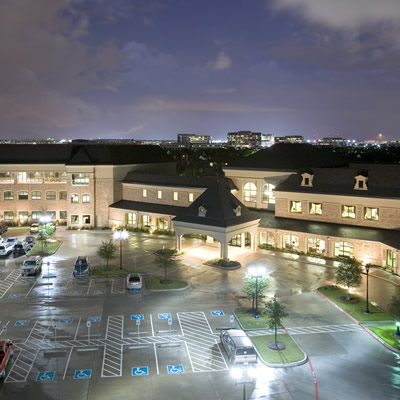
Baylor Scott & White Medical Center - Frisco
5601 Warren Pkwy , Frisco, TX, 75034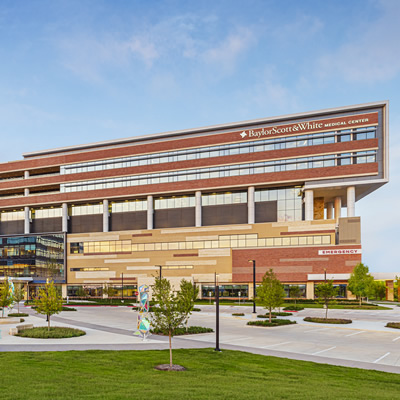
Baylor Scott & White Medical Center - Frisco at PGA Parkway
7600 Better Way , Frisco, TX, 75033
Baylor Scott & White Medical Center - Grapevine
1650 W College St , Grapevine, TX, 76051
Baylor Scott & White Medical Center - Irving
1901 N MacArthur Blvd , Irving, TX, 75061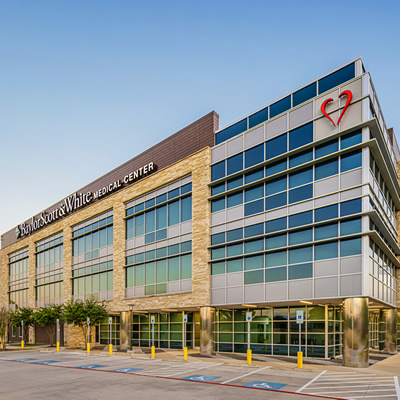
Baylor Scott & White Medical Center - Lake Pointe
6800 Scenic Dr , Rowlett, TX, 75088Horario de atención al público
Horario de atención al público
Horas de oficina
Preguntas frecuentes
-
What does irritable bowel syndrome feel like?
Symptoms vary depending on the predominant subtype. Typical symptoms include abdominal discomfort, bloating, and bowel habits like diarrhea, constipation or a combination of both .
-
What brings on an IBS flare-up?
Stressful events and certain foods can trigger your IBS symptoms. Food triggers can vary from person to person. If you have periods, you may notice your symptoms get worse around the time they start each month.
-
Is irritable bowel syndrome curable?
There is no cure for IBS. However, medication, lifestyle changes and diet changes can significantly reduce symptoms.
-
Can IBS cause back pain?
Back pain from IBS is referred pain, typically from constipation. It is important to get a proper workup with your doctor for any back pain-related issues before assuming it is due to constipation.
-
Can IBS cause nausea?
Yes, you may have some nausea, but it is not typically a predominant feature of IBS.
-
Can a colonoscopy detect IBS?
There is no direct test to confirm IBS. A colonoscopy is not typically used to diagnose IBS, however your doctor may order a colonoscopy to rule out other conditions that can cause similar symptoms to IBS.
-
Is irritable bowel syndrome an autoimmune disorder?
No. IBS is a functional gastrointestinal (GI) disorder, meaning that there is no structural damage to the gut, and the cause is not directly linked to the immune system attacking the body.
Expert advice from our blog
Scrubbing In® is a place where hands-on healthcare discussions are happening every day with the people whose own hands are on the front lines of patient care—the doctors, nurses and medical staff who are saving lives and advancing medicine.Additional resources
How we reviewed this page
-
julio 17, 2025